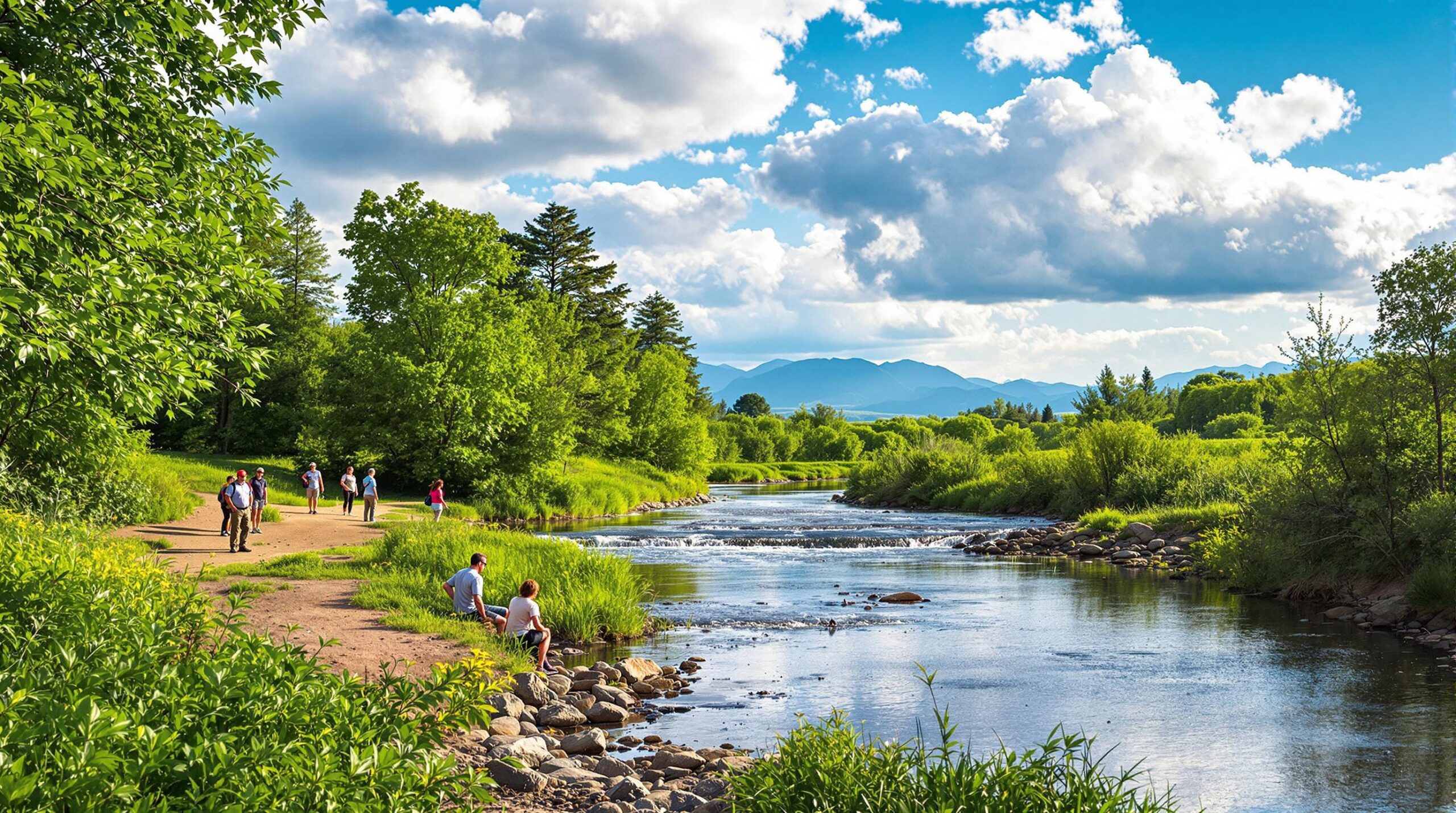Colorado is implementing a comprehensive statewide recreation strategy that addresses increasing visitor demand while safeguarding rivers and improving infrastructure. Officials say the plan arises from heightened outdoor tourism and the need to protect waterways essential for rafting, fishing and camping. Programs director Chris Yuan-Farrell of Great Outdoors Colorado has described the effort as part of a broader priority to incorporate river conservation into sustainable outdoor recreation.
In support of these goals, organizations such as Colorado Rivermap are conducting surveys to pinpoint stretches of river that may require habitat restoration or upgrades to amenities for anglers and paddlers. Those surveys help guide decisions about where state and local governments should invest resources for preserving ecosystem health. At the same time, localities like Chaffee County and Grand County have formally endorsed the overarching strategy, viewing it as a practical route to balance booming tourism with natural resource protection.
Local coalitions are also involved in shaping on-the-ground policies. In the Pagosa Springs area, a regional partnership known as the Pagosa Area Recreation Coalition, or PARC, has been holding community engagement activities. According to a community notice, PARC is inviting public feedback on improvements to trails and open spaces, gathering data to create a long-term recreational plan. Their study area encompasses the Town of Pagosa Springs, Archuleta County and parts of surrounding counties.
Officials connected to PARC report that $125,000 has been secured from Colorado Parks and Wildlife and another $30,000 from the U.S. Forest Service to advance local priorities. An online posting from that same source shows that representatives from the Town of Pagosa Springs, Archuleta, Hinsdale, and Mineral counties, the Forest Service, Pagosa Lakes Property Owners Association and the Southern Ute Tribe are collaborating to shape policy decisions. Their leadership committee works with a task force of local stakeholders focused on winter and summer recreation, partnerships and funding, and education.
Statewide, various municipalities, federal agencies and nonprofits like American Whitewater and Colorado Parks & Wildlife are jointly overseeing projects that maintain outdoor opportunities. Many of these are backed by federal funds through the Outdoor Recreation Legacy Partnership, as well as state-level allocations tied to the Colorado Outdoor Regional Partnership. Overall, the approach is meant to help communities manage record tourism, which reached 93 million visitors spending $28 billion last year.
Conservation groups note that increasing pressures on waterways make initiatives like this essential to protect fisheries, wildlife habitat and the broader recreation economy. Entities such as Foundation for America’s Public Lands are working to integrate conservation practices and outdoor access. Meanwhile, Colorado Water Trust has expanded its scope to urban waterways in an effort to involve academic institutions and local groups in discovering community-led strategies for water stewardship.
Officials say the multi-year nature of the strategy includes forming specialized teams within two years to map priority zones for upgrades and restoration. These teams will also help ensure that infrastructure spending aligns with both community input and ongoing ecological assessments. The effort will be funded through a combination of public and private commitments, designed to maintain momentum beyond initial projects.
Participants attribute part of the plan’s structure to the Colorado 2025–2029 Statewide Comprehensive Outdoor Recreation Plan. That larger blueprint emphasizes equitable public access, habitat conservation and investment in new tourism facilities across different counties. Observers believe the coordination of smaller efforts, such as the PARC-led surveys, exemplifies how local input can effectively mesh with statewide objectives.
Some campground and RV operators are already considering practical infrastructure upgrades to meet conservation goals. Many are exploring low-flow showerheads, composting toilets and guest education materials as ways to reduce strain on water supplies. These measures demonstrate how responsible usage can preserve local water quality and align with the broader initiatives to protect rivers.
Others see opportunities for partnerships under the larger recreation framework. Cooperative efforts among campground owners, tourism boards and nonprofits can generate shared promotions or data exchanges that spread out visitor traffic and support managed growth. Coordinating resource usage and opening new revenue paths through guided tours can help private businesses remain in step with government-led restoration plans.
By promoting both practical facility changes and cross-sector relationships, Colorado’s approach is designed to manage significant tourism pressures without sacrificing crucial ecological protections. Officials have noted that robust municipal support is key, as seen in how PARC’s leadership structure integrates representatives from multiple agencies. Many expect similar community-driven coalitions to emerge in other parts of the state.
Policymakers and outdoor advocates hope Colorado’s model will inspire other regions aiming to merge growing visitor numbers with responsible land and water use. They encourage residents to share feedback through surveys like PARC’s and stay tuned for more joint efforts from local governments and nonprofits. These voices will heavily influence how campgrounds, trail networks, and water resources are enhanced in the coming years, ensuring that recreation and conservation can thrive together.


